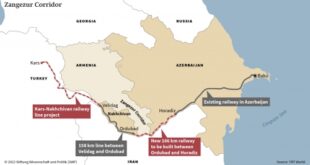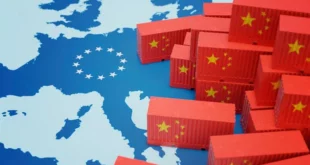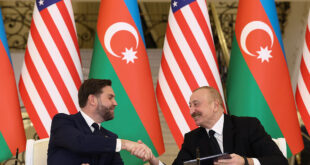The Russian Far East is “drifting away” from the rest of the country, according to an investigation carried out by Nezavisimaya gazeta – Regiony, and the Kremlin’s much-ballyhooed program intended to reverse that process may in fact be making it worse.At present, Igor’ Naumov writes in the current issue of the Moscow journal, only four percent of the economy of the Russian Far East is “connected” to that of the rest of Russia, with an overwhelming share – some 75 percent – tied to Pacific rim countries instead (http://www.ng.ru/ngregions/2007-12-17/13_rubezh.html).
In addition, over the past fifteen years, as the Russian Federation has moved away from state financing of government-identified projects to private enterprises whose decisions are not necessarily linked to the national interest, “the economic and humanitarian ties of the federal center” to this region “have been constantly falling.”
And finally, there has been a net outmigration from this enormous Russian region of 1.7 million people during the same period, leaving it with a total population of only a few more than three million, which means that much of the Russian Far East is virtually uninhabited.
In order to counter these trends, President Vladimir Putin in January 2007 announced plans for a major investment program in the region, but so far, it has not had much impact, Naumov says, and there are even reasons to think that it may exacerbate the situation.
There are three reasons for that. First, almost all of the funds that have been allocated to it have gone to the city of Vladivostok to spruce it up for regional summit meetings. That makes Russia’s largest city on the Pacific look better, but it does nothing for the interior.
Second, as even Regional Development Minister Dmitriy Kozak acknowledges, the current “methodology for distribution and expenditure of budget means” in these regions is “at its roots incorrect.” As a result, what government money there may be is not going where it is most needed and could do the most good.
And third – and this is likely to prove the most politically problematic for Moscow – because the center has provided too few funds for the region’s future development, leaders there have an incentive to use Chinese guestworkers rather than Russian laborers.
Moscow officials estimate that in the next several years, the Russian Far East will need at least three million additional workers, but the center’s aid package for development does not provide any money for the construction of apartments and other infrastructure that might attract and support Russians from other parts of the country.
In the absence of such funds, regional leaders are planning to make use of Chinese guest workers, who, unlike Russian specialists will “agree to live in barracks and don’t need apartments and schools” for themselves and their families. And with the arrival of the Chinese, even more Russians are likely to leave.
At the very least, such shifts will cause some Russian nationalists to charge that the Kremlin is “selling out” the region to overpopulated China next door. But even if those emotional charges are untrue, what Putin is doing will almost certainly lead more leaders in the Far East to look abroad rather than to Moscow to build up their homeland.
 Eurasia Press & News
Eurasia Press & News



